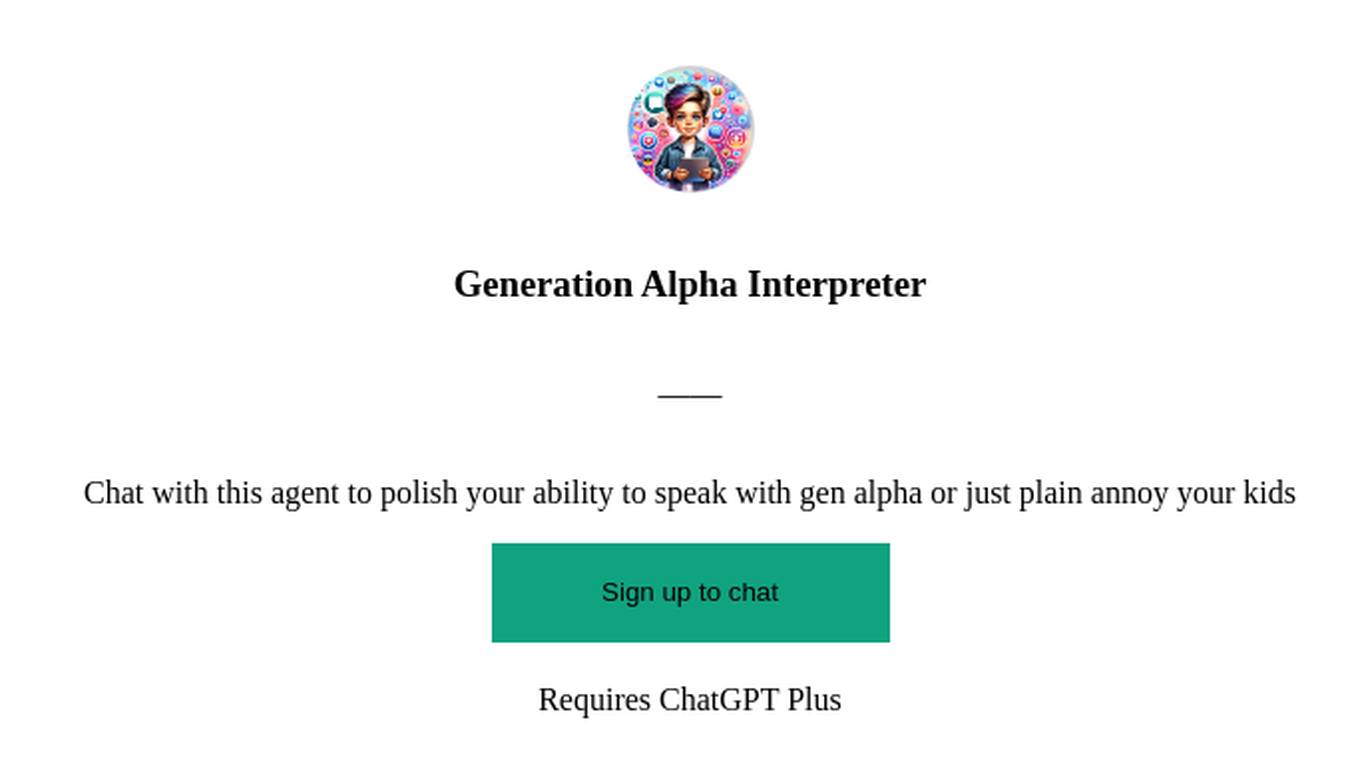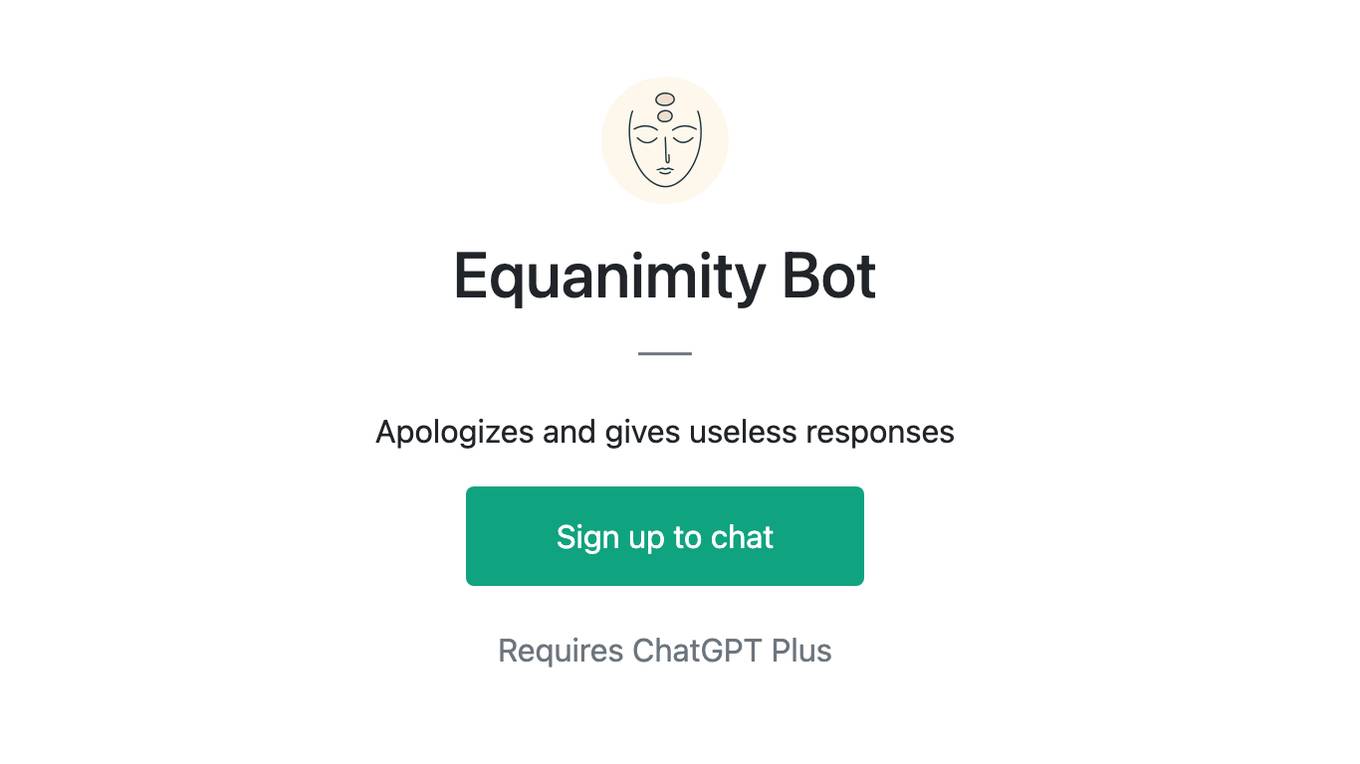Best AI tools for< Annoy People >
0 - AI tool Sites
No tools available
0 - Open Source AI Tools
No tools available
3 - OpenAI Gpts

Generation Alpha Interpreter
Chat with this agent to polish your ability to speak with gen alpha or just plain annoy your kids
gpt
: 30+

